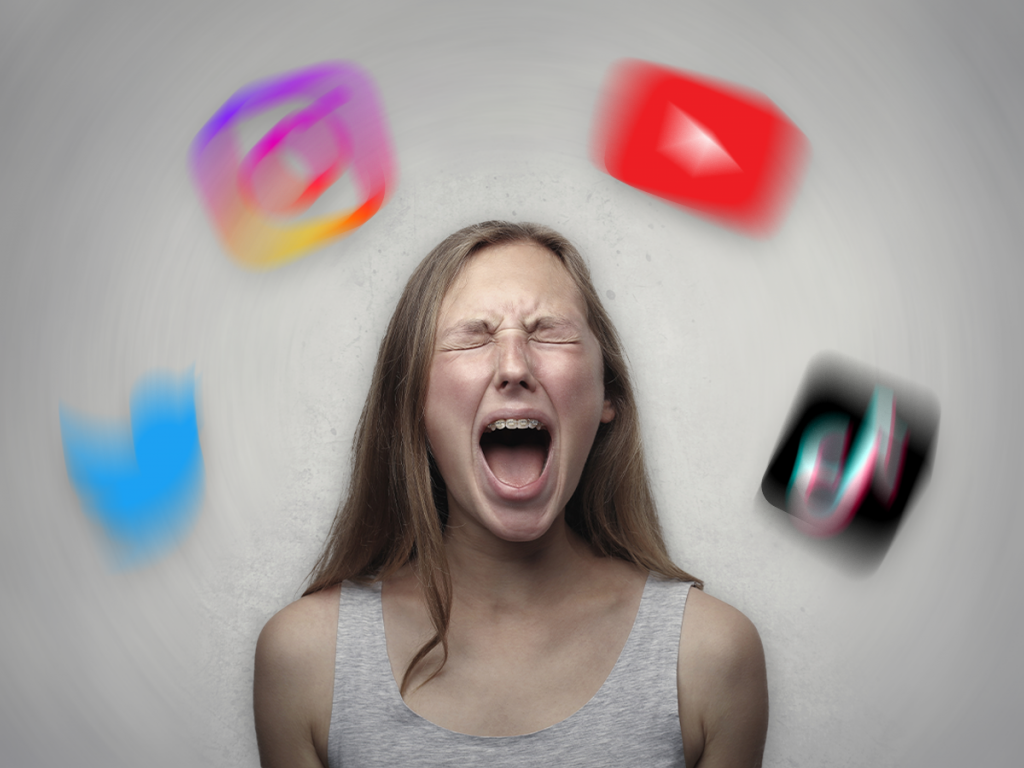Label volunteer, Georgia Stone, immerses us into the topic of content consumption and overload in the 21st century.
Do you feel your time slipping away, hours speeding by as you continuously scroll through social media?
TikTok, Instagram Reels and YouTube Shorts have all honed into the rising popularity of short form content, a craze that is argued to reduce our attention span and have severe mental health implications. After reading this, will you uninstall TikTok, or are you self-admittedly addicted, unable to go a day without it?
These short fifteen second videos have us glued to our screens as we watch a personalised flow of enjoyable content, to look away would be to risk missing something good. Some have even compared this short form media to slot machines as we may not enjoy the first or second video but once the algorithm gets it right, it feels worth it once the flood of dopamine washes over us.
Although it seems harmless to simply enjoy watching a few videos. Internet researchers have found that the constant need for instant entertainment has led to our attention span significantly decreasing. This has major implications for the future of education, work, and our personal lives as we increasingly struggle to concentrate and focus on one thing for an extended period of time. Teachers have had to adapt their methods to engage their students, employers must deal with low productivity and focus from employees. But what next? These quick fixes, although allowing us to be taught and get jobs, don’t solve the problem and in fact may just be making it worse.
However, these videos do have their benefits as those who may have otherwise been unheard are able to utilise the widespread audience of social media to share their ideas, experiences, and small businesses. It has also been instrumental in large societal movements such as the BLM or #MeToo movement in which people were able to share important information and their sides of the story, raising awareness. On the other hand, research has been conducted into the TikTok algorithm that revealed that it favors those who tend to fit an ideal feminine aesthetic, this includes white middle class notions of femininity. Therefore, rendering other experience of girlhood invisible.
Some may argue that none of this matters, because it’s social media and it’s just for fun.
But nowadays we live out our lives on social media, ‘did it even happen if we don’t post it?’. People are made famous simply for making videos, look at Charli D’Amelio or Addison Rae. We are constantly hearing different ideas and ‘life hacks’ that change the way we live our lives. “5 ways to make him like you”, “5 reasons you aren’t getting the results you want at the gym” and “How to make your cakes more fluffy”. These videos change the way we act around potential partners, how we work out and what we put in our food.
Ultimately, the algorithms endeavor to keep us on the app so will show us anything that it thinks we’ll like. But as we aimlessly search for a 15 second video that will make us laugh and give us that split second dopamine rush, we are exposing ourselves to videos that affect not only what we think about but how we think entirely.
It’s time to reflect on how we use our phones and what we can do as young people to better understand why we do the things we do and if it’s beneficial for the greater good. What will you do to stop the scrolling?
Edited By: Rachel Cannings (Culture and Entertainment Editor)
Design By: Sarim Mangi (Head of Design)


